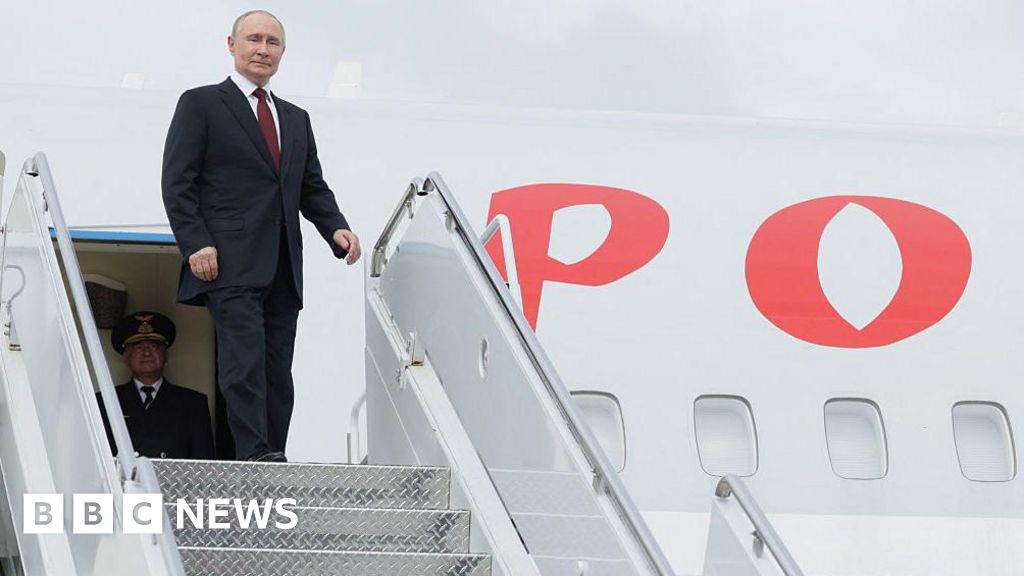Ukrainian President Volodymyr Zelenskyy is planning to press President Trump not only for long range Tomahawk missiles and upgraded air defense capabilities, but also for increased intelligence sharing to help his forces inflict more damage on Russia’s energy sector.
A Ukrainian and a U.S. lawmaker told CBS News that Kyiv wants to purchase equipment to upgrade its existing weapons systems, including for the F-16 jets it already possesses. On Thursday, Zelenskyy also met with executives from defense firm Lockheed Martin about the F-16 aircraft, as well as missiles. He also met with Raytheon, which makes Patriot missile systems, about potential joint manufacturing.
Energy supply is the less conventional weapon to be discussed Friday, and it’s a key interest for Mr. Trump. CBS News confirmed the U.S. has been aiding Ukraine through intelligence support in its efforts to hit Russian energy supplies, according to sources familiar with the U.S. efforts. Energy is the main source of income for Moscow’s war chest.
Ahead of the cold winter months, Ukraine and Russia have been targeting each other’s energy sector to deprive — or at least make more costly — the supply of heat and electricity. The Ukrainian government says that Russia has attacked the infrastructure at Naftogaz, the largest gas and oil company in Ukraine, six times this month as part of its campaign.
During his Washington visit this week, Zelenskyy had meetings with U.S. energy company executives that he said had been proposed by President Trump himself. He posted on social media videos of discussions with those executives and can be heard speaking in English about liquified natural gas terminals.
Zelenskyy also met with Energy Secretary Chris Wright and said that they discussed the Russian strikes on Ukrainian energy and the need to restore the facilities that were damaged in the attacks.
The Wall Street Journal was first to report on Oct. 1 that Mr. Trump had recently signed off on allowing U.S. intelligence and the Pentagon to aid Kyiv with strikes on Russian energy infrastructure. Last week, the Financial Times reported that U.S. intelligence shared with Kyiv had indeed already enabled strikes on important Russian energy assets far beyond the frontline.
That targeting indicates a more aggressive posture by the Trump administration than its rhetoric would indicate.
Asked about the Financial Times’ reporting, House Intelligence Ranking Member Jim Himes, Democrat of Connecticut, told “Face the Nation with Margaret Brennan” that the Ukrainian attacks on refineries had reduced Russia’s ability to produce gasoline and other products by almost 20%.
Himes, a member of the Gang of 8, the congressional leaders who are privy to sensitive classified information, said that despite Trump’s often friendly rhetoric toward Russia, his actions had not necessarily matched up.
“His rhetoric has always been skeptical of the Ukrainians and bizarrely friendly to Vladimir Putin. I’m telling you that his actions to date have been insufficient, by the way, just as Biden’s actions were insufficient, but they haven’t been consistent with this very skeptical rhetoric,” Himes said on “Face the Nation.”
Energy analyst Kevin Book of ClearView Energy, who confirmed that 20% damage figure to CBS News, tallied at least 18 Russian refineries that have been hit by at least one Ukrainian drone strike, affecting nearly half of Russian distillation capacity. This has reduced Russia’s ability to export refined products and has contributed to gasoline shortages within Russia.
The pain is clearly being felt by Moscow. On Sept. 30, the Russian government also announced an extension of its temporary ban on gasoline exports through the end of the year. Diesel, marine fuel and other gas oils were also banned.
Mr. Trump has been mulling whether to provide long-range weapons like Tomahawks to Ukraine, which is a step former President Joe Biden did not take. Both presidents have had concerns that strikes deep inside Russian territory that are facilitated by U.S. equipment would be perceived as escalatory and trigger a Russian response that could potentially draw in the U.S. or other NATO members.
Trump indicated to reporters on Thursday that he may not provide Tomahawks: “We have a lot of them, but we need them. I mean, we can’t deplete for our country. So, you know, they’re very vital, they’re very powerful. They’re very accurate, they’re very good, but we need them too.”
In the meantime, Ukraine’s own offensive drone technology has rapidly developed, enabling it to strike targets well inside the Russian territorial borders. Some of the hits on energy installations have been carried out by drones, according to Bloomberg News.
A lawmaker familiar with developing Ukraine policy told CBS News that Ukraine’s offensive drone technology is a potential game changer. Ukraine does not need U.S. permission to use drones it has produced to strike Russia, but it does need U.S. permission to strike into Russia with U.S.-provided weapons. The Trump administration’s decision to provide long-range targeting intelligence would allow for increased effectiveness of the Ukrainian drones, which would make it less vital for the U.S. to provide weapons for the same purpose.
Meanwhile, Senate Majority Leader John Thune said Thursday that it is finally time to move in the next 30 days on the secondary sanctions bill that would further reduce Russia’s ability to sell oil to buyers like India, China, and others. The bill has overwhelming bipartisan support, and a veto-proof majority, so, if it makes it to Mr. Trump’s desk, he would have to sign it into law.
There is also a second bill Congress being considered in the coming days that would designate Russia a state sponsor of terrorism for the crime of kidnapping of Ukrainian children, which could trigger further financial penalties. Republican Senators Katie Britt and Lindsay Graham as well as Democratic Sens. Amy Klobuchar and Dick Blumenthal are co-sponsoring the measure.
Last week, first lady Melania Trump said Russian President Vladimir Putin had personally responded to her advocacy on behalf of Ukrainian children by promising to discuss future releases of children. Yale University investigators estimate that at least 35,000 Ukrainian children have been taken into Russia, and the International Criminal Court issued a warrant for Putin’s arrest, given his direct role in the scheme.
The Trump administration is hoping that the increased economic and military pressure will jumpstart the stalled diplomatic track. On Thursday, President Trump said he expected to meet again soon with Putin, perhaps in Budapest, Hungary.
Ukraine remains skeptical of Putin’s intentions. Ukraine’s new ambassador to the U.S., Olga Stefanishyna, said that the massive overnight missile strike by Russia hours before Presidents Putin and Trump spoke by phone Thursday exposes “Moscow’s real attitude toward peace.”


Leave a Comment